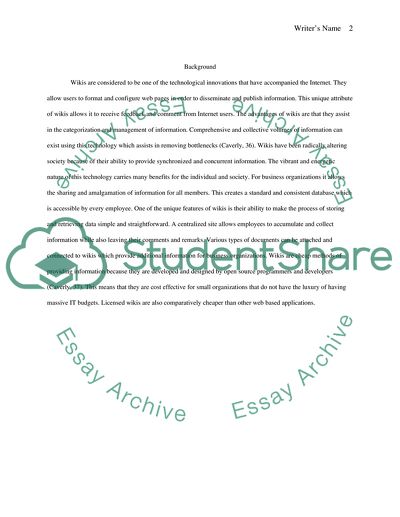Cite this document
(Wikis and Collaborative Knowledge Construction Case Study, n.d.)
Wikis and Collaborative Knowledge Construction Case Study. Retrieved from https://studentshare.org/information-technology/1722397-efutures
Wikis and Collaborative Knowledge Construction Case Study. Retrieved from https://studentshare.org/information-technology/1722397-efutures
(Wikis and Collaborative Knowledge Construction Case Study)
Wikis and Collaborative Knowledge Construction Case Study. https://studentshare.org/information-technology/1722397-efutures.
Wikis and Collaborative Knowledge Construction Case Study. https://studentshare.org/information-technology/1722397-efutures.
“Wikis and Collaborative Knowledge Construction Case Study”, n.d. https://studentshare.org/information-technology/1722397-efutures.


